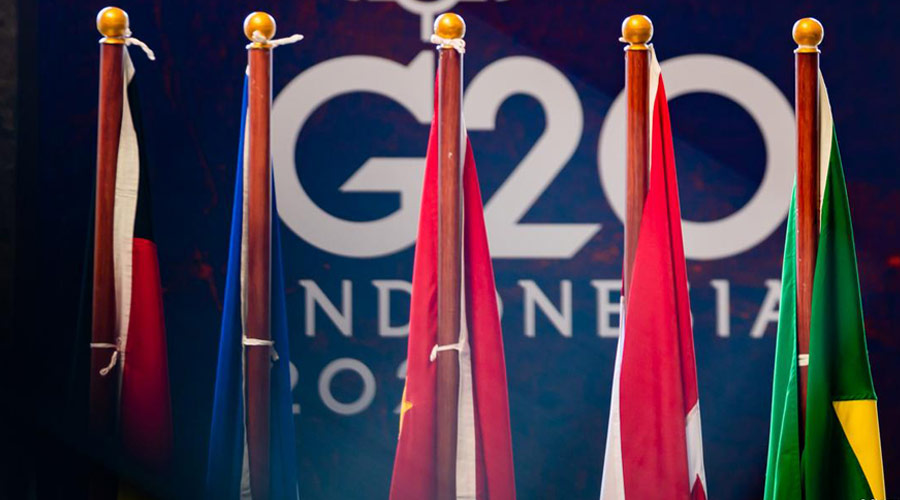The Group of 20 (G20) nations have some disagreements over restructuring debt for distressed economies, the chief of the International Monetary Fund (IMF) said on Saturday, adding that banning private cryptocurrencies should be an option.
India’s G20 presidency comes as its South Asian neighbours Sri Lanka, Bangladesh, and Pakistan are seeking urgent IMF funds due to an economic slowdown caused by the Covid-19 pandemic and the Russia-Ukraine war.
China, the world’s largest bilateral creditor, urged the group of big economies on Friday to conduct a fair, objective and in-depth analysis of the causes of global debt issues as clamour grows for lenders to take a large haircut, or accept losses, on loans.
“On debt restructuring, while there are still some disagreements, we now have the global sovereign debt roundtable with consideration of all public and private creditors,” IMF managing director Kristalina Georgieva told reporters after chairing the roundtable with Indian finance minister Nirmala Sitharaman.
“We just finished a session in which it was clear that there is a commitment to bridge differences for the benefit of countries.” US treasury secretary Janet Yellen said there were no “deliverables” from the meeting, which was mostly organisational.
Further discussions of the panel, which includes major bilateral creditors, including China, India and the G7 countries, several debtor countries, are planned around the time of the IMF and World Bank spring meetings in April.
“We certainly had that agreement that this is a useful forum,” Yellen told Reuters in an interview. “We look forward to participating in it.”
Crypto restrictions
Apart from restructuring debt, regulating cryptocurrencies is another priority area for India, which Georgieva agreed with. “We have to differentiate between central bank digital currencies that are backed by the state and stable coins, and crypto assets that are privately issued,” Georgieva said.
“There has to be a very strong push for regulation... if regulation fails, if you’re slow to do it, then we should not take off the table banning those assets, because they may create financial stability risk.”
Yellen said she had not suggested the “outright banning of crypto activities, but it was critical to put in place a strong regulatory framework.” India has asked the IMF and Financial Stability Board to jointly prepare a technical paper on crypto assets, which could be used in formulating a coordinated and comprehensive policy to regulate them.
The international organisations are expected to present their joint paper during the 4th finance ministers and central bank governors meeting in October.
Reuters











